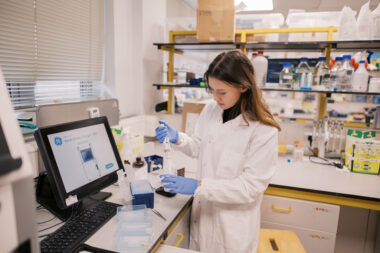Mitochondrial diseases are a group of conditions in which small cellular structures called mitochondria don’t work properly. Mitochondria are the main producers of energy in cells and often referred to as the ‘powerhouse’ of the cell. Mitochondrial diseases mainly affect parts of the body that require the most energy to work properly, such as muscles, the heart, liver, brain, nerves and pancreas.
There are currently no cures for these conditions, and the development of treatments is often slowed by challenges in diagnosis and a lack of available tests, also known as biomarkers, to measure how mitochondria work in those people with symptoms of mitochondrial condition
The centre led by Professor Patrick Chinnery at the University of Cambridge will work to address this hold up in getting treatments from laboratory to clinic by setting up a national platform to bring new treatment approaches into clinical trials.
With Professor Chinnery as the Principal investigator, the centre boasts some of the UK’s leading experts in the field of mitochondrial disease, including Professor Rita Horvath, University of Cambridge, Professor Robert Taylor, Newcastle University, Professors Robert Pitceathly and Mike Hanna, UCL. Clare Chatfield from the Lily Foundation will also be part of the Centre, and it will have formal links across the UK, including with teams in Manchester, Birmingham and Oxford.

